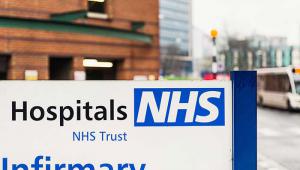By Richard Johnstone | 5 August 2014
A majority of the 11 hospitals placed in special measures last July have made improvements to care and management as a result of a regime that included assistance from well-performing hospitals, a regulatory update has found.
Analysing the progress at the trusts, the Care Quality Commission, Monitor and the NHS Trust Development Authority said leadership improvements had been made and the relationship between managers and clinicians had got better.
The 11 trusts were identified by NHS England medical director Sir Bruce Keogh in July 2013. He highlighted problems that included a lack of openness and an unwillingness to learn from mistakes.
Publishing the update following a year of the programme, the CQC’s chief inspector of hospitals Sir Mike Richards said those that had taken early action had made the greatest improvement. As well as partnerships with other trusts, support measures included the appointment of improvement directors to ensure trusts stuck to their plans.
Following the progress report, two trusts – Basildon and Thurrock University Hospitals NHS Foundation Trust and George Eliot Hospital NHS Trust – have achieved a rating of ‘good’, meaning they will leave the support scheme entirely.
Three others – Buckinghamshire Healthcare NHS Trust; East Lancashire Hospitals NHS Trust; and Northern Lincolnshire and Goole NHS Foundation Trust – are now rated as 'requires improvement'. They have been taken out of special measures designation, but will continue to receive additional support.
Improvements at five trusts – United Lincolnshire; North Cumbria University; Sherwood Forest; Burton; and Tameside – have not been deemed sufficient to end the support, and special measures will continue for six months. One trust, Medway, has failed to make significant overall progress and will remain in special measures after being given an overall rating of 'inadequate'.
‘The evidence in the report shows that the special measures process has brought improvements in the quality of care in most cases, which would have been unlikely without the regime,’ Richards said.
‘Although there have been improvements, it is important to emphasise that further improvements need to be made, especially in relation to safety and responsiveness.
‘Our new inspection model has helped us get under the skin of hospitals. The special measures process is doing what it set out to do, and I am confident that it will lead to further improvements.’
Monitor chief executive David Bennett added the report showed patients are already seeing improvements at their local hospitals, but there is still more work to be done.
‘Where trusts have yet to come out of special measures, we will make sure they deliver the improvements patients expect,’ he added.





















